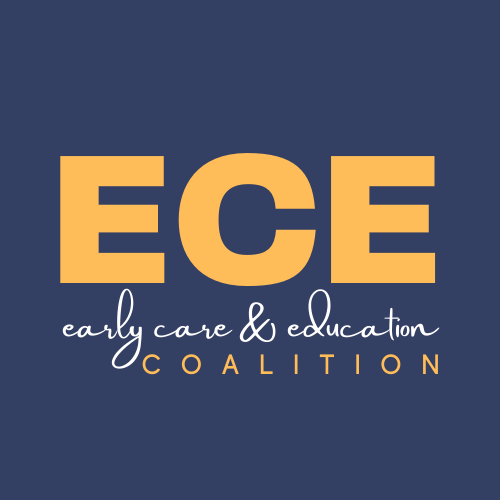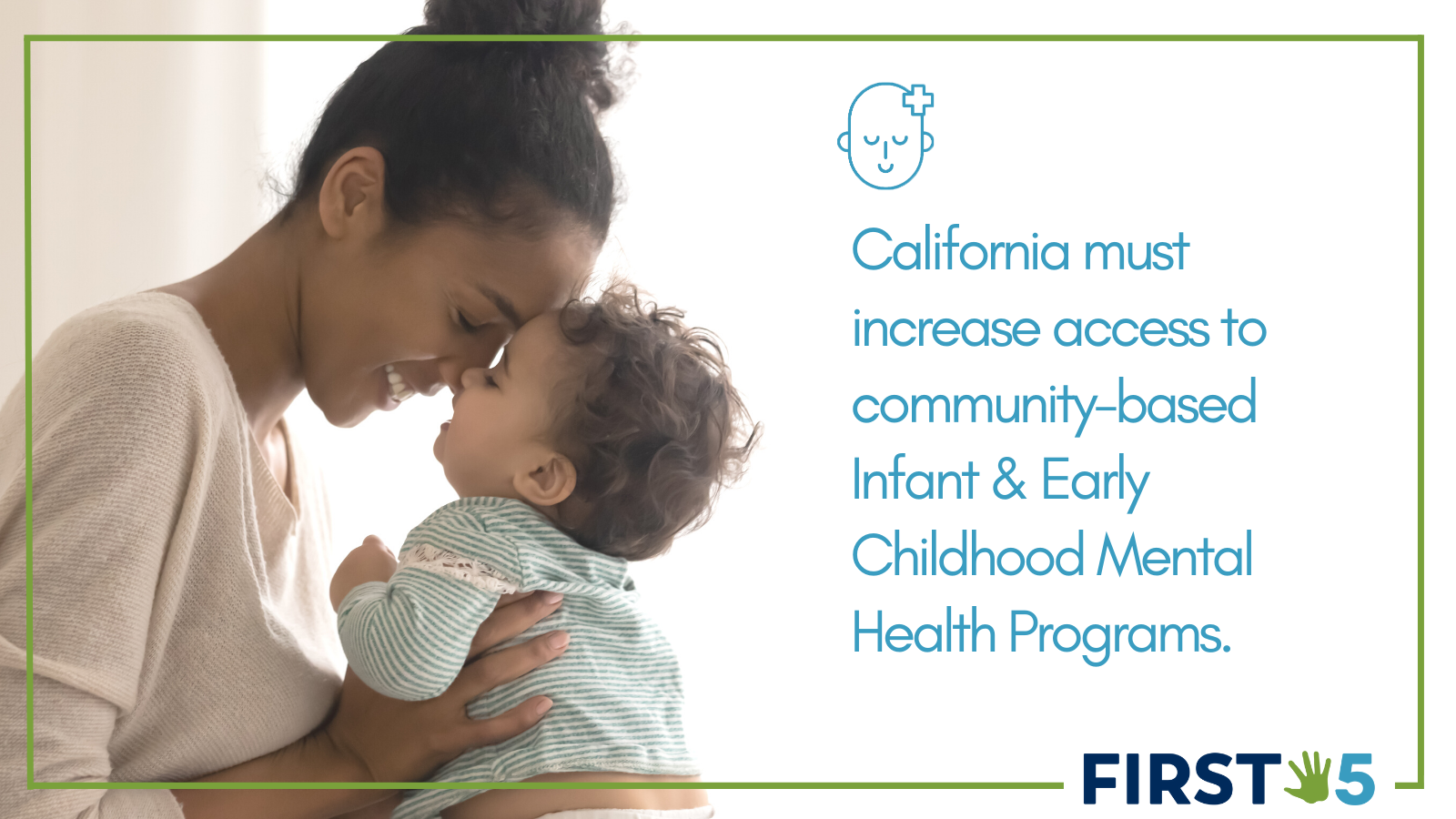
First 5 Advocacy Day 2022
Every year, the network of First 5 Commissions participates in the First 5 virtual Advocacy Day — an opportunity for First 5s across the state to speak with California policymakers about the importance of early childhood investments and supporting family-serving systems to ensure the overall well-being of children and families in the state.
The early years of a child’s life are foundational for success in school and shape the person they will become as adults, especially because the first five years of life are when 90 percent of a child’s brain is developed. This crucial period of brain formation will affect how a person learns, communicates, and behaves for the rest of their lives —which is why First 5s advocate for policies that optimize children’s development and support the well-being and health of young kids and their families.
This year’s Advocacy Day is also focused on how the COVID-19 pandemic has dramatically impacted and exacerbated the already fragile and fragmented early childhood systems of care and heightened the urgency to support working families, especially within our hardest-hit communities of color. As such, First 5s are advocating for policies that prioritize prevention and intervention services and lower barriers to accessing essential physical and mental health services and systems of care to meet families where they are.
First 5 LA — along with the network of First 5s across the state — are uplifting the following budget and policy priorities at this year’s Advocacy Day to demonstrate the investment needed to strengthen early childhood systems of support in California, particularly in the wake of the COVID-19 pandemic.
To learn more about First 5 2022 virtual Advocacy Day, click here to read the press release.
For more on First 5 LA’s 2022 Policy Agenda, click here.
 The Early Care and Education (ECE) Coalition 2022-2023 Budget Ask
The Early Care and Education (ECE) Coalition 2022-2023 Budget Ask
The lack of available child care is significantly hindering many women’s ability to return to work. To stop a widening wealth gap between women and men, particularly women of color, and continue economic growth, the ECE Coalition — a group of 35 diverse organizations including First 5 LA — is uplifting the need for increased child care provider wages, waiving of family fees, and investments in child care infrastructure and workforce development grants.
To learn more about the ECE Coalition’s policy and advocacy agenda, click here. To view the ECE Coalition Letter to legislators on budget priorities, click here.

LEGISLATIVE PRIORITIES RELATED TO
EARLY CARE AND EDUCATION
Legislation SB 976 (Universal Preschool Act):
SB 976 (Leyva) would establish universal preschool and provide California’s young children and their families equitable access to quality early learning and care services. SB 976 would help to maintain family choice and create a true mixed-delivery system by allowing community-based programs to offer universal preschool for all 3- and 4-year-olds.
Why First 5 LA supports it:
.
- Working parents need full-day, full-year and, sometimes, non-traditional and weekend hours of care. Community-based providers, which include licensed centers and family child care homes, are already providing flexible options in care. Ensuring young children and their families have ample choices in early learning services is especially critical in today’s economy given the continued impact of the COVID-19 pandemic on working-class, low-income, and communities of color.
. - Keeping intact and drawing in new workers to the field is particularly critical to the economic health and recovery of Los Angeles County, as we have the greatest share of the state’s children ages prenatal to 5-years-old, yet licensed centers and family child care homes across the county only have the capacity to serve 13 percent of all working parents with infants and toddlers.
. - Furthermore, SB 976 would help to mitigate the child care crisis in California by:
.
- Allowing the existing workforce to be the providers of universal preschool, therefore keeping 3- and 4-year-olds in their programs and helping them to stay open.
. - Increasing supports for new providers, such as more technical assistance around start-up processes, and removing fees for the issuance or renewal of child development permits.
- Allowing the existing workforce to be the providers of universal preschool, therefore keeping 3- and 4-year-olds in their programs and helping them to stay open.
Legislation AB 92 (Family Fees):
AB 92 (Reyes) would establish a more equitable sliding scale for family early learning fees.
Why First 5 LA supports it:
.
- AB 92 will help ensure that low-income and working families have access to affordable early learning services and supports by capping fees for state-subsidized preschool and child care to no more than 1 percent of a family’s monthly income and waiving them all together for those earning less than 75 percent of state median income and receiving cash aid through CalWORKs through October 31, 2023.
. - Also, while regulations around the COVID-19 pandemic have eased, its impact continues. In Los Angeles County, approximately 18 percent of residents live below the poverty line and rising rent costs is a huge driver of economic instability. One 2021 estimate showed the average rate of a two-bedroom apartment in the county is now nearly $4,000 per month. While rent increases have been halted across the county for some residents as a stopgap measure in response to financial hardships caused by the COVID-19 pandemic, this freeze will end in 2023, meaning families will likely have to dedicate even more of their resources to housing. Reducing and removing fees is necessary to increasing access to early learning services that allow working parents to maintain gainful employment and provide for their families.

LEGISLATIVE PRIORITIES RELATED TO FAMILY SUPPORTS
SB 951 (Paid Family Leave):
SB 951 (Durazo) would phase in higher levels of wage replacement through California’s Paid Family Leave program, and by 2025, provide many new parents with 90 percent of their wages when they take eight weeks of leave to care for their child. As a result, this bill would help more families be able to take time off from work to be with their new child.
Why First 5 LA supports it:
.
- Increasing the financial support that families receive through California’s Paid Family Leave system will allow more parents to participate in the program and take time off from work to care for their new child. In turn, this will benefit child development, maternal physical and mental health, family economic security, and even businesses retention and productivity.
. - Positive attachments between parent and child, as well as parent-child bonding at the earliest stages of life, promote optimal health, well-being, and developmental outcomes in children.
. - Currently, the state’s Paid Family Leave program replaces just 60 to 70 percent of an individual’s wages when they take leave to care for a new child. Absent state action this year, that will drop even lower, to 55 percent of an individual’s wages. As such, there is significant urgency to this bill, as many Californians, and particularly those earning low incomes, cannot currently afford to utilize the state’s paid family leave policies.

LEGISLATIVE PRIORITIES RELATED TO
CHILD AND FAMILY HEALTH
AB 2402 (Continuous Medi-Cal eligibility):
AB 2402 (Blanca Rubio, Wood) would require that children under the age of 5-years old receive continuous eligibility for Medi-Cal. Overall, this bill would ensure no children under the age of 5 served by Medi-Cal lose access to health care coverage due to temporary changes in family income.
Why First 5 LA supports it:
- Children ages prenatal to 5-years old are truly a special population, with 90 percent of brain development occurring during this period and millions of neural connections forming every second. AB 2402 acknowledges this important designation by ensuring continuous access to health care based exclusively on a child’s age, even if family income fluctuates
. - Access to health care services through Medi-Cal helps children receive upstream, prevention-oriented supports like early identification and intervention that promote optimal child development, as well as support lifelong health and well-being. Losing access to care, even temporarily, can lead to young children missing well-child visits and other vital services.
. - During the declared public health emergency related to COVID-19, children under the age of 5-years old have temporarily received continuous coverage through Medi-Cal. However, without legislative action, children could begin losing Medi-Cal coverage once the declared emergency ends. AB 2402 serves as a vehicle to make continuous coverage for young children permanent.
For more information, click here for a fact sheet from First 5 Association.

FIRST 5 PRIORITIES RELATED TO GOV. NEWSOM’S
FISCAL YEAR 2022-23 BUDGET
Expand California Home Visiting, Black Infant Health programs, and ensure flexibility in the home visiting models:
Home visitors have served as a critical link of support for families throughout the COVID-19 pandemic, connecting them with services at a time when they needed it the most. Newsom’s January budget proposed a total of $50 million for the California Home Visiting Program and Black Infant Health Program.
First 5 LA is advocating that the proposed funding:
- Go toward the California Home Visiting program itself, not individual home visiting models. Enduring additional options and flexibility for families to receive home visiting services — particularly those who would benefit from the program but were difficult to reach even before the pandemic, such as families without a primary home — is vital. Families should have the choice of where they receive home visits, whether it be the home, a community setting, clinic, or via telehealth, as it is critical to meeting families where they are and where they feel safe.
. - Strengthen the Black Infant Health program by ensuring that families can continue to participate virtually, as they have during the COVID-19 pandemic. This will support Black maternal health and help to reduce the unacceptably high rate of maternal mortality facing Black mothers in California.
For more information, click here for a fact sheet from First 5 Association.
Strengthen the Transition Process Between
Early Start and Special Education Services:
Newsom’s January budget proposed a total of $65.5 million to strengthen the transition process between Early Start and special education preschool services, helping to ensure that children continue to receive early intervention and special education services when they turn 3-years old.
First 5 LA supports this proposed funding because:
.
- When a child turns 3-years old, they should transition from California’s Early Start program — which provides early intervention supports — to special education services provided through local education agencies. When this transition happens successfully and promptly, the continuity in supports and access to care can help children overcome developmental delays and return to optimal developmental pathways.
. - For too many families, however, the transition between Early Start and preschool special education services fails to occur successfully. When this happens, families are left to navigate the fragmented system on their own, or they may even drop out of the system entirely. Losing access to these supports, even for just a brief period, adversely affects a child’s development.
. - The proposed funding will support successful transitions by providing money to reduce service coordinator-to-child caseload ratios at state Regional Centers, support preschools to increase inclusion of children served by regional centers, establish Individuals with Disabilities Education Act specialists at each Regional Center to provide training for staff, and provide additional resources to facilitate interagency coordination.

$250 Million in One-Time Funding for
Infant and Early Childhood Mental Health (ECMH):
Through the new Children & Youth Behavioral Health Initiative (CYBHI), California has committed to funding that better supports systems that help improve the health and well-being of the state’s children and youth. As the program is currently constructed, however, it relies significantly on the K-12 school system, so it may not be able to adequately serve the needs of infants and toddlers.
As such, First 5 LA — in partnership with First 5 Association — is advocating for $250 million in one-time funding through a budget augmentation process to strengthen infant child and mental health services in Newsom’s 2022-23 fiscal year budget because:
- This funding would support evidence-based, evidence-informed, and community-defined best practices and strategies to improve the social-emotional health of young children. It would also provide for additional workforce development and the hiring and training of qualified early childhood mental health consultants.
. - This funding would strengthen infant and early childhood mental health services and promote provider training. It would specifically help support home and community-based services that prevent and mitigate mental health concerns, promote healthy social-emotional development, and train existing providers who serve infants and toddlers.
. - Approximately 43 percent of young children in California have experienced at least one Adverse Childhood Experience (ACE). To meet the state’s goal of reducing ACEs and toxic stress by half within one generation, it is critical to prioritize the social-emotional health of children ages prenatal to 5-years old with a multi-layered, multi-systems public health approach to child, family, and community well-being.
For more information, click here for a fact sheet from First 5 Association.